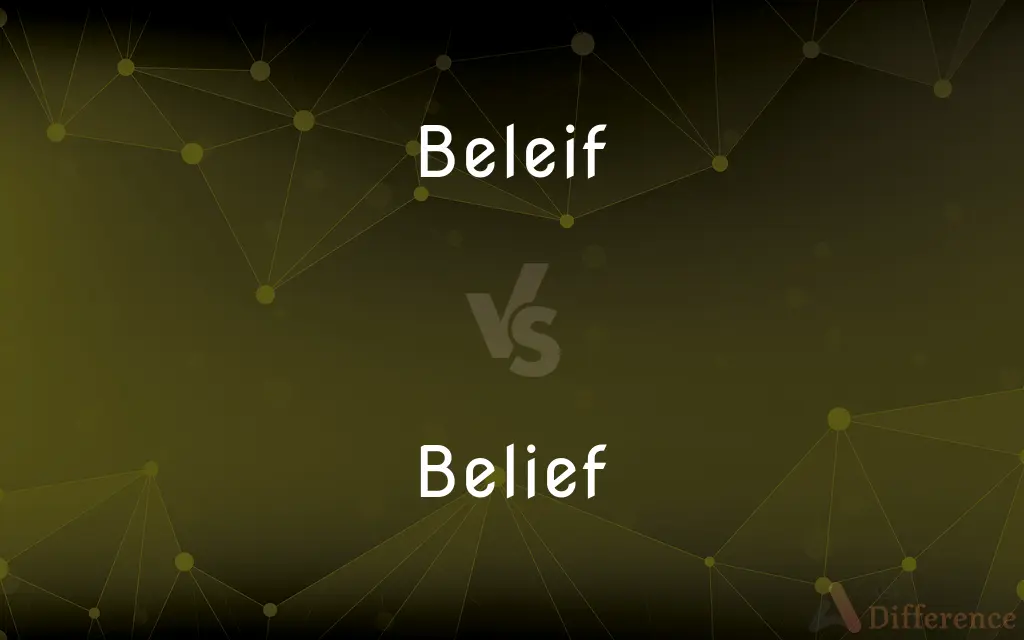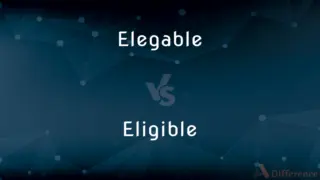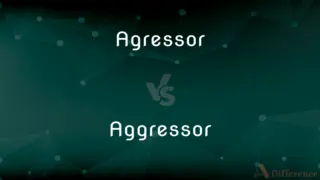Beleif vs. Belief — Which is Correct Spelling?
Edited by Tayyaba Rehman — By Fiza Rafique — Updated on April 2, 2024
"Beleif" is a common misspelling, while "belief" correctly refers to an acceptance that something is true or exists.

Table of Contents
Which is correct: Beleif or Belief
How to spell Belief?

Beleif
Incorrect Spelling

Belief
Correct Spelling
ADVERTISEMENT
Key Differences
Remember the saying, “I before E except after C.”
Associate “belief” with trust, focusing on the “lie” you trust to be true.
Think of “lie” in the middle of “belief.”
Recollect other similar words like "chief" and "thief" for pattern consistency.
Visualize a leaf (sounds like "leif") falling, reminding you to keep the 'i' before 'e'.
ADVERTISEMENT
How Do You Spell Belief Correctly?
Incorrect: My beleif system has evolved over time.
Correct: My belief system has evolved over time.
Incorrect: His beleif in magic is unshakable.
Correct: His belief in magic is unshakable.
Incorrect: She has a strong beleif in science.
Correct: She has a strong belief in science.
Belief Definitions
Belief denotes an opinion or perspective.
It's a common belief that cats are nocturnal.
Belief refers to an acceptance that something exists or is true, without proof.
It's my belief that he's telling the truth.
Belief can also indicate a formal statement of religious doctrine.
The church's beliefs are stated in its constitution.
Belief is a religious conviction.
His beliefs are grounded in traditional Christianity.
The mental act, condition, or habit of placing trust or confidence in another
My belief in you is as strong as ever.
Mental acceptance of and conviction in the truth, actuality, or validity of something
His explanation of what happened defies belief.
Something believed or accepted as true, especially a particular tenet or a body of tenets accepted by a group of persons.
Mental acceptance of a claim as true.
It's my belief that the thief is somebody known to us.
Faith or trust in the reality of something; often based upon one's own reasoning, trust in a claim, desire of actuality, and/or evidence considered.
My belief is that there is a bear in the woods. Bill said he saw one.
Based on this data, it is our belief that X does not occur.
(countable) Something believed.
The ancient people have a belief in many deities.
(uncountable) The quality or state of believing.
My belief that it will rain tomorrow is strong.
(uncountable) Religious faith.
She often said it was her belief that carried her through the hard times.
(in the plural) One's religious or moral convictions.
I can't do that. It's against my beliefs.
Assent to a proposition or affirmation, or the acceptance of a fact, opinion, or assertion as real or true, without immediate personal knowledge; reliance upon word or testimony; partial or full assurance without positive knowledge or absolute certainty; persuasion; conviction; confidence; as, belief of a witness; the belief of our senses.
Belief admits of all degrees, from the slightest suspicion to the fullest assurance.
A persuasion of the truths of religion; faith.
No man can attain [to] belief by the bare contemplation of heaven and earth.
The thing believed; the object of belief.
Superstitious prophecies are not only the belief of fools, but the talk sometimes of wise men.
A tenet, or the body of tenets, held by the advocates of any class of views; doctrine; creed.
In the heat of persecution to which Christian belief was subject upon its first promulgation.
Any cognitive content held as true
A vague idea in which some confidence is placed;
His impression of her was favorable
What are your feelings about the crisis?
It strengthened my belief in his sincerity
I had a feeling that she was lying
Belief is confidence in someone or something.
She has a strong belief in her own abilities.
Belief Meaning in a Sentence
Many ancient belief systems included gods and goddesses.
She expressed her belief in the importance of education.
His belief in himself grew as he overcame challenges.
His belief that he could win motivated him to train harder.
The community's belief in nonviolence shaped their response.
The children's belief in Santa Claus made Christmas magical.
Despite evidence to the contrary, he held onto his belief.
His belief in hard work led to his success.
The belief that the earth was flat was once widespread.
Her belief in equality drives her activism.
The belief in ghosts is widespread across cultures.
His belief in simplicity influenced his lifestyle choices.
Her belief in kindness changed the way she interacted with others.
The novel explores the belief in destiny versus free will.
The belief that all life is connected is central to many philosophies.
The community's shared beliefs brought them closer together.
The ancient belief in astrology still influences many today.
A firm belief in oneself is crucial for overcoming obstacles.
The belief in a higher power is common in many cultures.
The belief in eternal life comforts many people.
Changing one's belief system can be a profound experience.
His unwavering belief in justice led him to become a lawyer.
Common Curiosities
Which conjunction is used with belief?
Standard conjunctions like "and" or "or" can be used, depending on the context.
What is the root word of belief?
The Old English root is "geleafa."
Why is it called belief?
Derived from Old English "geleafa," "belief" means "trust in God," emphasizing acceptance or conviction.
Which article is used with belief?
Both "a" and "the" can be used, e.g., "a belief" or "the belief."
Which vowel is used before belief?
The indefinite article "a" is typically used before "belief."
What is the singular form of belief?
"Belief" itself is singular.
What is the plural form of belief?
"Beliefs."
Is belief a negative or positive word?
Neutral by definition, but context can influence its perception.
What is the pronunciation of belief?
/bɪˈliːf/ "bih-LEEF."
Is belief an adverb?
No, "belief" is not an adverb.
What is the verb form of belief?
"Believe."
Is belief a collective noun?
No, it is not.
Is belief a vowel or consonant?
"Belief" is a word containing both vowels and consonants.
How many syllables are in belief?
Two syllables.
What is a stressed syllable in belief?
The second syllable, "lief."
What part of speech is belief?
It is a noun.
What is another term for belief?
Conviction.
What is the first form of belief?
Belief (as a noun).
Which preposition is used with belief?
"In" is commonly used, as in "belief in something."
Which determiner is used with belief?
"This," "that," "my," etc., depending on the context.
What is the second form of belief?
Not applicable since "belief" is a noun.
Is belief a noun or adjective?
"Belief" is a noun.
Is belief a countable noun?
Yes, as one can have multiple "beliefs."
Is the word belief imperative?
No, "belief" is not used in an imperative form.
Is belief an abstract noun?
Yes, it represents a concept or idea, making it abstract.
How do we divide belief into syllables?
be-lief.
What is the opposite of belief?
Doubt.
What is the third form of belief?
Not applicable for the same reason.
Is the belief term a metaphor?
Not in itself, but can be used metaphorically in contexts.
How is belief used in a sentence?
"Her belief in the project's success was unwavering."
Share Your Discovery

Previous Comparison
Elegable vs. Eligible
Next Comparison
Agressor vs. AggressorAuthor Spotlight
Written by
Fiza RafiqueFiza Rafique is a skilled content writer at AskDifference.com, where she meticulously refines and enhances written pieces. Drawing from her vast editorial expertise, Fiza ensures clarity, accuracy, and precision in every article. Passionate about language, she continually seeks to elevate the quality of content for readers worldwide.
Edited by
Tayyaba RehmanTayyaba Rehman is a distinguished writer, currently serving as a primary contributor to askdifference.com. As a researcher in semantics and etymology, Tayyaba's passion for the complexity of languages and their distinctions has found a perfect home on the platform. Tayyaba delves into the intricacies of language, distinguishing between commonly confused words and phrases, thereby providing clarity for readers worldwide.







































